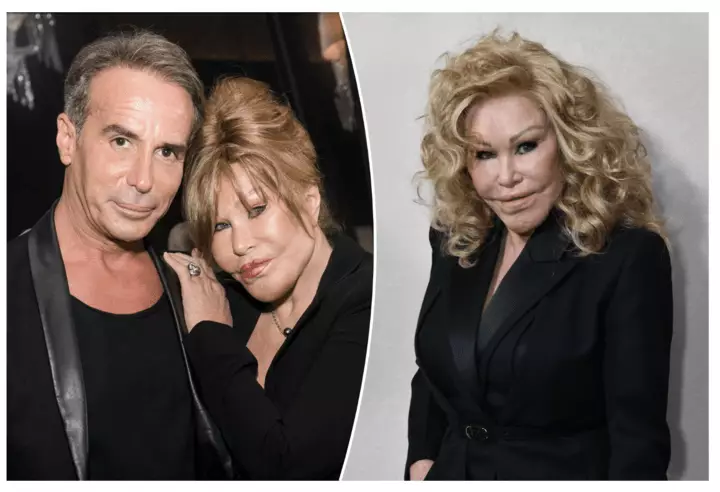Jocelyn Wildenstein, often referred to as “Catwoman” due to her striking and controversial cosmetic surgeries, passed away at the age of 79, leaving behind a life filled with glamour, heartache, and a substantial legacy. Her fiancé, Lloyd Klein, has vigorously defended her character in the wake of her death, fighting against the narrative of her decline and the circumstances that led to her financial struggles.
Lloyd Klein, a noted couturier, was in a committed relationship with Wildenstein for over two decades. Following her unexpected passing on New Year’s Eve in a Paris hotel due to a pulmonary embolism, Klein has been vocal about his personal grief and the misrepresentations surrounding her life. “She was fabulous. She was the love of my life,” he stated, emphasizing the richness of their relationship despite the challenges they faced. Klein’s insistence that Wildenstein was not financially destitute at the time of her death offers a more nuanced perspective on a woman frequently characterized by tabloid headlines that often overshadow her humanity.
Despite claims to the contrary, Klein asserts that Wildenstein was far from broke at the time of her death. The socialite, known for her extravagant lifestyle, received significant financial settlements following her tumultuous divorce from billionaire Alec Wildenstein. Initially awarded $2.5 billion along with a yearly income of $100 million, her fortunes took a downturn when her ex-husband’s family cut off financial support. By 2018, she filed for bankruptcy, and her luxurious Trump Tower apartments were seized. Even as her wealth dwindled, reports indicated a haunting contradiction—she was said to possess millions in assets yet claimed to have “zero” liquid cash. Klein pointed out the impact of a fraudulent painting, which was initially thought to have significant value but diminished her financial standing dramatically.
Wildenstein’s children, Diane and Alec Jr., were reportedly estranged from their mother, which complicates the narrative of familial bonds that often gets glossed over in sensational media stories. Klein noted that at the time of her death, he had not been in contact with her children, highlighting the complexities of relationships often exacerbated by public attention and personal disagreements. He expressed confidence that the issues surrounding Wildenstein’s assets would now be dealt with by lawyers, as he seeks dignity for her name and legacy rather than financial gain for himself.
Wildenstein’s life was marred by the relentless scrutiny of the media, which focused on her physical appearance while conveniently sidelining her personal experiences and struggles. Klein remarked that while she did face ridicule for seeking cosmetic procedures, she also possessed a remarkable sense of humor and resilience. “Jocelyn doesn’t deserve to be ridiculed,” he stated, reflecting on how society’s harsh judgments can overlook the profound personal narratives of those in the public eye.
Klein argued that Wildenstein was often misunderstood and that her avant-garde approach to beauty was pioneering in a culture where surgery has since become normalized. He recalled how she joked about wanting to look like Cleopatra—an indication of her self-awareness and humor about her own image. Many today undertake similar cosmetic procedures; in hindsight, Wildenstein was perhaps a precursor to this modern phenomenon.
As Klein reflects on the moments he cherished with Wildenstein, he remembers their light-hearted conversations, their shared laughter, and the profound connection forged through shared experiences. His wish for her final outfit—a glamorous black Chanel dress—along with plans to celebrate her life with family and friends, encapsulates the love and respect he holds for her.
In the end, Wildenstein’s story encompasses far more than her tabloid nickname; it is a poignant reminder of love, loss, and the intricate complexities behind the facade of fame. While the world may remember her as a controversial figure, those who truly knew her understand the depth of her spirit and the meaningful connections she shared. Klein’s ongoing commitment to preserving her dignity underscores the importance of viewing public figures as whole individuals rather than mere headlines and caricatures.


Leave a Reply